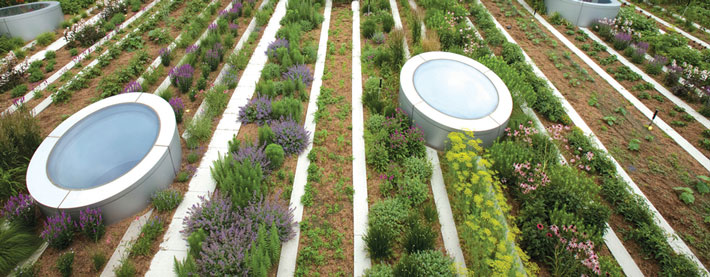NBS and Environmental & Responsive Design

Module 3 | NBS and ENVIRONMENTAL & RESPONSIVE DESIGN | 6 credits
The Module analyses a new challenge: how Nature Based Solution (NBS) will improve quality of life in cities, reducing energy consumption and ecological footprint, adapting them to climate change, re-integrating nature and natural processes into built areas, accelerating the environmental quality and comfort at buildings and urban scale.
The Units are oriented to understand the Principles of immaterial resilience to be applied in the Responsive Design process, focusing on the sustainable use of natural sources (green and water): nature-based solutions are proposed and integrated as architectural innovative solutions that use natural elements to achieve environmental and societal goals. The Module 3 investigates the significant potential of NBS to provide energy and resource-efficient responses to climate change, and to enhance our natural capital, providing additional multiple benefits to city residents such as improvements in health and wellbeing, and improvements of the local green economy.
Units:
- Principles of Immaterial resilience for Responsive Design
- Sustainable use of natural sources for Climate change adaptation and mitigation
- Responsive use of recycled and eco-friendly materials
- Urban regeneration through nature-based solutions
- Green and soft solutions (nature-based) for improving well-being in urban areas
- Evaluation of Urban environmental comfort and tools
Students will be able to analyze the Principles of immaterial resilience for Responsive Design and Climate change adaptation and mitigation, to experiment and combine nature-based solutions for a sustainable and conscious use of natural resources in the urban regeneration process, implementing the resilience capacity of buildings, well-being in urban areas and environmental comfort (i.e. reduction of heat islands). Through design workshop and laboratory Students will be able to define a concept building design fostering the architectural integration of green/soft technologies (green and water), experimenting how the use of eco-friendly materials and innovative nature-based solutions could influence the environmental quality of architecture, with responsive and site specific design.


